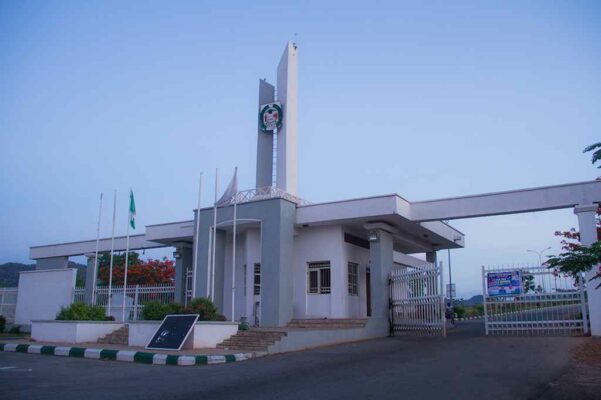Prof. Abdulrasheed Na’Allah, Vice-Chancellor of the University of Abuja, has said the institution will begin the exploration of mineral deposits on its campus, in the near future, with a view to boosting the nation’s economy and Gross Domestic Product.
Na’Allah stated this on Tuesday in Abuja at a symposium organised by the university’s Institute for Legislative Studies, with the theme: “Legislative intervention in Nigeria’s mining sector for sustainable revenue generation.”
- Blame state govts, not FG for Nigeria’s education woes – Osinbajo
- Nigeria paid $500m for new Tucano jets – U.S
He said the university would start the minerals exploration after all due processes with the government had been finalized, and the institution’s Geology and Mining Department is established.
The VC said of the effort: “This is also in tandem with Nigeria’s goals of diversifying the economy and increasing the Nation’s Gross Domestic Product (GDP).
“Sometimes ago, we had a Chinese Company that obtained a license to mine on our campus and this is a university in which we have our development plans and strategies already.
“And all we are trying to do is to mobilize for the development of a department of Geology, which has already been approved by the Senate, to be called Geology and Mining Department.
“We have our strategies on how we want to collaborate with industry, we are intensifying that effort and we hope that in no distance future, we will have this department, with all the strategies.
“We want to make sure we help the nation’s development through mining on our campus. But it has to be controlled by us.
“We intend to have collaborations with private companies, with industries; that is our intention,” Na’Allah said.
Na’Allah also said that to make mining exploration more productive, the Nigerian government must partner effectively with the private sector, as the private sector’s partnership would bring more accountability.
Prof. Sheriff Ibrahim, the Director of the Institute for Legislative Studies, said the symposium aimed at driving for an overhaul of the mining sector and its legislations, to create a boom in the sector.
“It was unfortunate that Nigeria, which is the largest economy in Africa, is still a monoculture economy, with all the focus only on oil and gas,” he said, lamenting that the mining sector contributed only between 0.3 to 0.55 to the country’s annual GDP because it has not been fully harnessed.
Ibrahim said in countries such as South Africa, mining accounts for 25 per cent of the nation’s economy, and 40 per cent in Botswana, while in the Democratic Republic of Congo, it is about 18 per cent.
“Nigeria is the largest economy in Africa, but still remains a monoculture economy, not succeeding in diversifying the economy of this particular sector.
“When President Buhari came in 2015, his main priority, as he pointed out, was to diversify the Nigerian economy and look into the mining sector.
“In Nigeria, we have just 0.3 or 0.55 contribution from mining to our annual GDP and that is because the sector is not fully harnessed.
“The mining Act and regulations exist, but the problems are execution and implementation, as well as rigid monitoring and evaluation of this particular sector.
“We want legislative amendments, as well as other submissions from the legislative arm, which will guarantee an adequate and efficient utilization of this sector, for better and adequate revenue generation for Nigeria,” Ibrahim said.
Dr Mainasara Umar, an International Law Analyst, said that the government should be prepared to invest heavily in the development of the mining sector to attract foreign investors.
Umar also stressed the need for securing mining areas and sites in the light of the banditry in Nigeria’s North-West zone and some other regions which began when exploration started on mines sites in the states. (NAN)

 Join Daily Trust WhatsApp Community For Quick Access To News and Happenings Around You.
Join Daily Trust WhatsApp Community For Quick Access To News and Happenings Around You.

